Discover The Listening Post
The Listening Post

204 Episodes
Reverse
The horrific Bondi Beach attack in Australia was pulled into Israel’s global information war this past week. As blame was directed towards pro-Palestine politics, media narratives blurred Jewish identity and Israeli state policy - raising urgent questions about who is put at risk when Israel’s anti-Palestinian messaging travels beyond its borders. Contributors: Naama Blatman – Executive member, Jewish Council of Australia Ori Goldberg – Academic and political commentator Antony Loewenstein – Author, The Palestine Laboratory Ramia Sultan – Palestinian Australian lawyer On our radar The outspoken and irreverent Hong Kong media mogul - Jimmy Lai - was convicted this week of conspiring with foreign forces. Tariq Nafi reports on how the Chinese Communist Party is tightening its grip on Hong Kong through its media. The pervasiveness of Hindutva pop In India, Hindu nationalism, or "Hindutva", has spread into a variety of media platforms. Meenakshi Ravi explores its musical subgenre, Hindutva pop, and speaks to one of its biggest names. Featuring: Kanhiya Mittal – Musician Kunal Purohit – Author, The Secretive World of Hindutva Pop Stars Samriddhi Sakunia – Journalist and current affairs Instagrammer
For more than a century, Warner Bros has been one of Hollywood’s biggest players, a legacy studio that helped define the Golden Age of cinema with iconic blockbuster movies. Now, it’s at the centre of a contentious, billion-dollar bidding war between Netflix, the world's leading streaming platform, and Paramount Skydance, owned by the powerful Ellison family, which has close ties to President Trump. Whichever way this goes, the outcome isn’t looking great. Contributors: Matt Craig - Reporter, Forbes Daheli Hall - Writer and director Lee Hepner - Antitrust lawyer Dominic Patten - Executive editor, Deadline On our radar This week, Australia became the first country in the world to impose a social media ban for children less than the age of 16. The Australian government says it is taking on Big Tech and safeguarding children, but some young people were able to quickly bypass the new rules. Ryan Kohls reports. The Imran Khan rumour mill Despite being in jail for more than two years, Imran Khan continues to occupy airtime in Pakistan. After the army restricted access to Khan, rumours of his death ricocheted across social media. Pressure from his supporters and family forced the military to lift the restrictions and grant Khan’s sisters access to speak to him. Meenakshi Ravi reports on the showdown between Imran Khan and powerful Field Marshal Asim Munir, and what it reveals about power, politics and narrative control in Pakistan. Featuring: Amber Rahim Shamsi - Pakistan Editor, Nukta Moeed Pirzada - Political YouTuber Mohammed Hanif - Author and journalist
Israeli Prime Minister Benjamin Netanyahu is asking for a pardon over a range of corruption charges laid against him after repeatedly telling Israeli journalists that he would clear his name in court. The prime minister has long described the case against him as a witch-hunt led by the media and the judiciary. If he succeeds in sidestepping the courts, Israeli journalists and judges will wonder what he might have in store for them. Contributors: Daniel Levy – President, US/Middle East Project Dana Mills – Writer, Local Call & +972 Magazine Jonathan Ofir – Writer, Mondoweiss Dan Perry – Author, "Ask Questions Later" Substack On our radar: This week, former United States Secretary of State Hillary Clinton insisted Israel’s PR problems have more to do with TikTok than with the genocide Israeli forces have inflicted on Gaza. Ryan Kohls looks at a persistent myth still making the rounds in American political circles. The phenomenon of Kim Ou-Joon Kim Ou-Joon is part journalist, part activist, part political performer. An outspoken and sometimes controversial voice who leans to the left ideologically, Kim leads South Korea’s biggest YouTube-based news network, primarily through a political podcast. The Listening Post’s Meenakshi Ravi reports on what Kim Ou-Joon - and others like him - reveal about the world of politics and media in South Korea. Featuring: Kim Ou-Joon – Founder and host, News Factory Jane Yeahin Pyo – Assistant professor, Tulane University Shreyas Reddy - Lead correspondent, NK News Subscribe to our channel: http://bit.ly/AJSubscribe Follow us on X : https://twitter.com/AJEnglish Find us on Facebook: https://www.facebook.com/aljazeera Check our website: http://www.aljazeera.com/ Check out our Instagram page: https://www.instagram.com/aljazeeraenglish/ Download AJE Mobile App: https://aje.io/AJEMobile #aljazeera #aljazeeraenglish #aljazeeranewslive
The United States’ deadly “counter-narcotics mission” off Venezuela’s coast hinges on an unproven drug-smuggling narrative - a familiar pretext for regime change, and one the mainstream media have been quick to echo. Meanwhile, Venezuelans face escalating repression at home. Contributors: Spencer Ackerman - Author, Reign of Terror and Waller vs Wildstorm Abby Martin - Journalist, The Empire Files Miguel Tinker Salas - Professor, Latin American history, Pomona College "Pablo" - Anonymous Venezuelan Journalist On our radar: New leaks, from a disputed 28-point peace proposal to a secretly recorded call between Trump’s envoy and a Russian official, have upended the delicate Russia-Ukraine negotiations. Meenakshi Ravi explores what these revelations mean for any future deal. Israel’s settlers: From margin to mainstream Israeli settler violence in the West Bank has surged to unprecedented levels, driven by a fringe movement whose far-right ideology has been amplified and normalised across Israeli news outlets. The Listening Post’s Nic Muirhead reports on the movement’s growing power and the media ecosystem enabling its rise. Featuring: Hilla Dayan - Sociologist, University of Amsterdam Nimrod Nir - Political psychologist, Hebrew University of Jerusalem / Director, AGAM Labs Oren Ziv - Photojournalist, +972 Magazine
In the West Bank, record levels of Israeli settler violence against Palestinians are unfolding with little mainstream coverage. The few journalists who try to report on it often face attacks themselves. When the violence is covered, the settlers are often framed as fringe actors, despite clear backing from the Israeli state. A de facto annexation is under way in the West Bank, and yet much of the international media continues to look away. Contributors: Ben Reiff – Senior editor, +972 Magazine Jasper Nathaniel – Journalist Leila Warah – Bethlehem-based journalist Mariam Barghouti – Ramallah-based journalist On our radar As the rhetoric coming out of the Trump administration calling for the removal of Venezuelan President Nicolas Maduro intensifies, much of the United States media is echoing that language. And with journalists branding Venezuela a “narco-state,” critics warn that the news media - much like in the lead-up to the Iraq War - is making the case for US military intervention. Defossilising the truth: Fighting fossil fuel disinformation As the COP30 climate summit in Belem wrapped up this week, we spoke with UN Special Rapporteur on climate change and human rights Elisa Morgera about a major barrier to real climate action: disinformation. Her latest report lays out how climate justice activists and policymakers are battling decades of coordinated greenwashing by some of the world’s biggest fossil fuel companies - efforts that continue to delay and undermine meaningful progress at this critical moment. Featuring: Elisa Morgera – UN Special Rapporteur on climate change and human rights
The BBC is in turmoil. A leaked dossier exposing a misedited speech of United States President Donald Trump and other editorial concerns has triggered resignations at the top - and a $1bn lawsuit threat from the US leader. Why the leak surfaced now, and who steps in next, are still open questions. Most importantly, will the BBC be able to recover from this moment? Contributors: Ben de Pear – Former editor, Channel 4 News Jane Martinson – Professor, University of London Karishma Patel – Former newsreader, BBC Tom Mills – Author, The BBC: Myth of a Public Service On our radar This week, Ahmed al-Sharaa became the first Syrian president ever to set foot in the White House. A landmark diplomatic trip filled with photo ops and political theatre, marking his transition from a US-designated terrorist to an ally. Meenakshi Ravi reports. AI slop tsunami: Is the internet now a junkyard? Elettra Scrivo explores how social media platforms are rapidly changing with the surge of AI content. Low-quality, mass-produced, artificially generated content, otherwise known as AI slop, is designed to trigger the algorithms and generate revenue for Big Tech companies. Featuring: Drew Harwell – Technology reporter, The Washington Post Mark Lawrence Garilao – AI video content creator Myojung Chung – Associate professor, Northeastern University
The Israeli government is facing what it calls a “public relations disaster” after a video surfaced showing soldiers torturing and sexually assaulting a Palestinian prisoner - a clear war crime under any legal system. Public outrage in Israel has focused less on the abuse itself and more on the leak. And the military’s chief prosecutor, who admitted leaking the footage, has been arrested and branded a traitor. The saga is yet another example of Israeli society’s unwillingness to confront what it has become. Contributors: Chris Doyle - Director, Council for Arab-British Understanding Mairav Zonszien - Senior Israel analyst, International Crisis Group Ori Goldberg - Academic and political commentator Yara Hawari - Co-director, Al-Shabaka On our radar: After an 18-month siege, the Sudanese city of el-Fasher has fallen to the RSF, triggering mass atrocities under a near-total media blackout. With journalists killed, captured, or missing, satellite imagery has become one of the few remaining windows into the violence. Ryan Kohls reports on the city’s fall and the growing evidence of a potential genocide in Darfur. Kenya’s most nicknamed president In Kenya, political satire often takes the form of sharp, witty nicknames - and President William Ruto has earned plenty. As his popularity wanes, young Kenyans online are using these nicknames to mock and challenge his leadership in ways that traditional media cannot. The Listening Post’s Nic Muirhead reports on Ruto’s long, growing and politically problematic list of nicknames. Featuring: Paul Kelemba (Maddo) - Cartoonist Nanjala Nyabola - Political analyst and writer Wandia Njoya - Professor of literature, Daystar University Producers: Soumayya El Filali & Nicholas Muirhead Subscribe to our channel: http://bit.ly/AJSubscribe Follow us on X : https://twitter.com/AJEnglish Find us on Facebook: https://www.facebook.com/aljazeera Check our website: http://www.aljazeera.com/ Check out our Instagram page: https://www.instagram.com/aljazeeraenglish/ Download AJE Mobile App: https://aje.io/AJEMobile #aljazeera #aljazeeraenglish #aljazeeranewslive
In this special episode of The Listening Post, we examine the rise of New York City mayoral candidate Zohran Mamdani. A democratic socialist and outspoken critic of Israel’s genocide in Gaza, Mamdani has faced a barrage of hostility from US mainstream media, the political donor class and the democratic establishment alike. The press has been particularly relentless, questioning not only Mamdani’s progressive policies but also his identity as a Muslim and an immigrant. But Mamdani is a digital native with an international following and a double-digit lead in the polls. His victory would reverberate far beyond New York City, shaking up the Democratic Party nationwide. This episode exposes how the media and the wealthy political class attempted to discredit Mamdani and how, against all odds, he turned their attacks into the foundation of a movement. Contributors: Kate de Gruyter - Senior director of communications, Third Way Adam Johnson - Podcast co-host, Citations Needed Briahna Joy Gray - Podcast host, Bad Faith Jon Paul Lupo - Consultant, Vocable Communications Presenter: Richard Gizbert Produced by: Elettra Scrivo, Ella Willis & Meenakshi Ravi
El-Fasher, Sudan: a city besieged, starving and largely unseen. As journalists come under fire in Sudan, a lack of international media interest is helping to conceal one of the world's worst humanitarian crises. Contributors: Hassan Berkia – Journalist Kholood Khair – Director, Confluence Advisory Khalid Medani – Associate Professor, McGill Institute of Islamic Studies On our radar: In the occupied West Bank, American journalist Jasper Nathaniel filmed Israeli settlers – backed by soldiers – attacking Palestinians during the olive harvest. Ryan Kohls speaks to Nathaniel about what he witnessed and what it reveals about Israel’s culture of impunity. Why India’s media faces scepticism beyond its borders India’s news channels were once symbols of a vibrant democracy. Today, they’re seen by many of India’s neighbours as propaganda tools - exporting jingoism, sensationalism and Hindutva politics across borders. Meenakshi Ravi reports on rising anti-India sentiment in the region and a crisis of credibility that no longer stops at home. Featuring: Roman Gautam – Editor, Himal Southasian Deepak Kumar Goswami – Filmmaker & actor Smita Sharma – Journalist
As Donald Trump tries to take credit for a ceasefire in Gaza, Israel continues to kill Palestinians. And as both Israeli and Palestinian captives are released, the glaring double standards in coverage lay bare how this genocide was allowed to go on for so long. Contributors: Tahani Mustafa – Visiting Fellow, European Council on Foreign Relations Mouin Rabbani – Co-editor, Jadaliyya Kenneth Roth – Former Executive Director, Human Rights Watch Oren Ziv – Journalist, +972 Magazine On our radar This year’s Nobel Peace Prize winner, Maria Corina Machado, chose to dedicate her award to Donald Trump. Meenakshi Ravi reports on what motivated the Venezuelan opposition leader to pander to the United States president. All the president’s women: the rise of the ‘womanosphere’ For years, the right-wing media space has been dominated by men. But the 2024 election shone a light on a rising parallel force within Donald Trump’s MAGA movement: the so-called "womanosphere". Across YouTube channels, social media and podcasts, conservative women are rebranding right-wing politics for a female audience. Featuring: Annie Kelly – UK Correspondent, QAA Podcast Nicole Kiprilov – Republican Party strategist Eviane Leidig – Author, The Women of the Far Right
For the past couple of months, the billionaire father-son duo of Larry and David Ellison have been making deals involving major media brands. Having acquired Paramount, the parent company of CBS News, they appointed Bari Weiss - an outspoken supporter of Israel - as the network’s editor-in-chief. The moves by the Ellisons are not just about growing their media empire, but about shaping the narrative around Israel in the US, where public support continues to decline. Contributors: David Klion - Columnist, The Nation Danielle Moodie - Host, The Danielle Moodie Show Ryan Grim - Reporter, Drop Site News On our radar: Israel and Hamas have agreed to the first phase of a Gaza ceasefire, ending two years of genocide. It’s a moment that brought relief to Palestinians in Gaza. But for Donald Trump, it was an opportunity for self-congratulation - with both he and his allies emphasising how pivotal he was in making things happen. Tariq Nafi has been following the story. Chega: How Portugal's media gave populism a megaphone In Portugal, the far-right party Chega, once on the fringes, is leading the polls, and its leader, Andre Ventura, has become one of the country’s most recognisable political figures. Ventura’s rise has been spurred by his television background and carefully crafted media persona. The onetime football pundit has become a political showman. And he’s been amplified by the country’s mainstream media, who have been chasing ratings over accountability. Ryan Kohls reports. Featuring: Miguel Carvalho - Journalist Ines Narciso - Disinformation researcher, Iscte-Iul Anabela Neves - Journalist, CNN Portugal
In this special episode, we examine the systematic targeting of Palestinian journalists in Gaza during two years of Israeli genocide. With international media barred from freely reporting in the Strip, local journalists have risked their lives to document the unprecedented killing, destruction and displacement around them. Since October 7, 2023, more media workers have been killed in Gaza than in any modern conflict. Families have been torn apart, homes and offices destroyed, and reporters have been wounded, seen their families killed or have been killed themselves. This episode reveals the extraordinary playbook employed by Israel to threaten, intimidate, smear and target Palestinian journalists. Contributors: Wael Dahdouh – Gaza Bureau Chief, Al Jazeera Jodie Ginsberg – Chief Executive, Committee to Protect Journalists Sharif Abdel Kouddous – Journalist & Editor, Drop Site News Rachel Shabi – Journalist and author Presenter: Richard Gizbert Produced by: Soumaya El Filali, Monazza Farooqi, Ella Willis, Tariq Nafi, Meenakshi Ravi
After almost 2 years of Israel’s genocide in Gaza, Western powers have issued synchronised declarations recognising Palestinian statehood - a diplomatic move seemingly born out of the immense public pressure they face. What’s missing from the story is the concrete measures those governments could take to stop the slaughter in Gaza, as well as their complicity by continuing to supply weapons to Israel. Contributors: Ines Abdel Razek – Co-director, Palestine Institute for Public Diplomacy Michael Lynk – Former UN special rapporteur, occupied Palestinian territory Michael Omer-Man – Director Israel-Palestine, DAWN Seamus Malekafzali - Journalist On our radar: Three years into a civil war, Sudan is one of the most underreported stories in the world. Meenakshi Ravi reports on the near-collapse of the country’s media industry and the journalists trying to break the information blockade. How Palantir got techno-militiarism trending Silicon Valley CEOs are increasingly making the case that their technologies can transform the way that wars are fought. And of all the companies involved in this military-tech boom, one stands out: Palantir. Branding itself as America First, the data analytics firm has won billions of dollars in contracts and makes no apologies for the need to kill people - if that's what it takes to protect Western interests. Tariq Nafi reports on how the company sells a sleek, one-click solution to warfare. Featuring: Juan Sebastian Pinto – Former Palantir employee Matt Mahmoudi – Researcher, Amnesty Tech Elke Schwarz – Author, Death Machines: The Ethics of Violent Technologies
It’s been just more than a week since the assassination of Charlie Kirk, and in death, as in life, the far-right podcaster is proving divisive. While his supporters mourn, many critics have seized the moment to call out his polarising legacy - a legacy now being weaponised by far-right leaders from DC to Tel Aviv. Contributors: Jeffrey Sharlet - Professor, Dartmouth College Jude Russo - Managing editor, The American Conservative Kyle Spencer - CEO, The Pro-Democracy Information Lab Meredith Clark - UNC Hussman School of Journalism & Media On our radar: This week, the UN formally declared what Palestinians have long been saying: That Israel is committing a genocide in Gaza. In English, Israeli officials are indignant at the charge. But in Hebrew, they continue to provide more evidence of their genocidal intent. Ryan Kohls reports. Russia, Ukraine and The Trump Effect Donald Trump’s second term has injected unpredictability into the Russia-Ukraine war: Unsettling Kyiv, emboldening Moscow and forcing media on both sides to recalibrate. The Listening Post hears from an exiled Russian journalist and a Ukrainian media scholar on how the conflict is being framed - and what both sides fear will come next. Featuring: Dariya Orlova - Associate professor, Mohyla School of Journalism Mikhail Fishman - Journalist, TV Rain
Israel’s rampage through the Middle East continues, with an attack on United States ally, Qatar. As Arab nations evaluate the value of a US security guarantee, we examine the fallout in the region and beyond. Contributors: Elham Fakhro – Research Fellow, Harvard Kennedy School Laleh Khalili – Professor of Gulf Studies, University of Exeter Yossi Mekelberg – Senior Fellow, Chatham House Yousef Munayyer – Senior Fellow, Arab Center Washington DC On our radar: A youth-led social media movement over the luxurious lifestyles of Nepal’s "nepo kids" culminated this week in the ouster of the country’s prime minister and days of violent unrest. Meenakshi Ravi examines the government’s unsuccessful effort to control the narrative. Covering corruption in South Africa Thirty years after the end of apartheid in South Africa, the African National Congress’s rampant corruption has widened inequality. Those trying to expose that corruption - whistleblowers - are paying the ultimate price - with their lives. Featuring: Devoshum Moodley-Veera – Whistleblower activist Pieter-Louis Myburgh – Investigative Journalist, Daily Maverick Songezo Zibi – Leader, Rise Mzansi
Israel’s renewed offensive in Gaza City - the largest Palestinian population centre - is being framed as an assault on Hamas’s “final stronghold”. But behind that narrative lies a campaign of expulsion and erasure that bears all the hallmarks of an endgame. Contributors: Dana Mills - Writer, Local Call & +972 Magazine Muhammad Shehada - Journalist Saree Makdisi - Professor of English & Comparative Literature, UCLA Tahani Mustafa - Visiting fellow, ECFR On our radar: A new AI-generated website unveiled by an Israeli minister claims to “uncover the hidden ties” between Palestinian journalists and Hamas. And despite its amateurish feel, it follows a pattern of dangerous smears against Palestinians. Post’s Tariq Nafi reports. The sci-fi obsessions of the tech elite Silicon Valley’s tech titans often say they are shaping a better tomorrow. This is a clique of men - names like Musk, Zuckerberg, Thiel and Altman - who all say they’ve been heavily influenced by science fiction. But those imagined sci-fi futures often come with a dystopian side, warnings that tech billionaires have seemingly failed to understand. Featuring: Alex Hanna - Director, Distributed AI Research Institute Max Read - Senior editor, New York magazine Tim Maughan - Author and Journalist
India is expelling Bengali Muslims - stripping citizenship, detaining and deporting them to Bangladesh. The crackdown has spread nationwide, prompted by years of BJP propaganda and a news media all too willing to sell the story of a Muslim "enemy within". Contributors: Shoaib Daniyal - Political editor, Scroll Fatima Khan - Political journalist Vaishna Roy - Editor, Frontline magazine Paranjoy Guha Thakurta - Journalist and filmmaker On our radar: The images of starving Palestinians in Gaza have provoked global outrage. Israel has launched a PR campaign to deflect blame. Ryan Kohls reports. An interview with Alex Shephard Alex Shephard of The New Republic explains how Donald Trump is putting unprecedented pressure on US media outlets. After CBS was forced to settle out of court with the president, Trump is now suing the Wall Street Journal and its owner - Rupert Murdoch - as well as politicising the Federal Communications Commission (FCC). Featuring: Alex Shephard - Senior editor, The New Republic
The Epstein saga has flipped the script within the MAGA movement. Having spent years accusing the Democrats of an establishment cover-up, many right-wing influencers are now turning against their idol, President Trump, as he resists calls to release the files. Contributors: Joan Donovan - Director, CriticalNet Mehdi Hasan - Editor-in-chief, Zeteo News Miles Klee - Culture writer, Rolling Stone Danielle Moodie - Host, The Danielle Moodie Show On our radar: For 21 months, mainstream media outlets have avoided calling Israel’s assault on Gaza a genocide. But this past week has seen a notable shift - prompted not by Palestinian voices, but by an Israeli scholar. Tariq Nafi reports on The New York Times, the breaking of a media taboo, and why, for many, it’s too little, too late. Palestinians are being erased in German media Mass surveillance, a crackdown on protest, and a media unwilling to question power: In Germany, pro-Palestinian voices are being silenced. Nicholas Muirhead reports from Berlin on the mounting assault on free expression. Featuring: Wael Eskander - Berlin-based journalist Martin Gak - Former Deutsche Welle journalist Sabine Schiffer - Director, Media Responsibility Institute
As Netanyahu courts Trump with peace prizes and platitudes, divisions over Israel in the MAGA media space are deepening. Contributors: Laura Albast – Fellow, Institute for Palestine Studies Mitchell Plitnick – Author, Except for Palestine Mouin Rabbani – Co-editor, Jadaliyya Jude Russo – Managing editor, The American Conservative On our radar: Since the US-Israeli GHF took over the distribution of aid, more than 800 Palestinians have been killed while attempting to collect it. New reporting uncovers the foundation’s links to plans for Gaza’s ethnic cleansing. Meenakshi Ravi reports. Georgia under fire: The crackdown on protests and the press Mass protests, a tightening grip on media and a creeping authoritarianism; eight months on, the struggle over Georgia's democracy is intensifying. Elettra Scrivo reports from Tbilisi on the mounting crackdown on journalists and independent voices. Featuring: Irakli Rukhadze – Owner, Imedi TV Nestan Tsetkhladze – Editor, Netgazeti Nino Zautashvili – Former host, Real Space
At Glastonbury, Britain’s biggest music festival, two artists called out Israel’s genocide in Gaza and accused the British government of complicity. On-stage remarks by one of them - Bob Vylan - plunged the country's public broadcaster, the BBC, which livestreamed the performance, into yet another Gaza-shaped row. Contributors: Des Freedman – Author, The Media Manifesto Peter Oborne – Journalist and broadcaster Karishma Patel – Former newsreader, BBC Justin Schlosberg – Professor of Media and Communications, University Of Westminster On our radar: In the United States, Zohran Mamdani has secured the Democratic nomination for New York mayor, despite relentless media attacks that focus less on his policies and more on his outspoken stance against Israel’s war on Gaza. Tariq Nafi reports. Palestinians are seen as some sort of existential threat, just for being there While debates rage in international media over phrases like “from the river to the sea” and “death to the IDF,” far less scrutiny falls on the anti-Palestinian abuse that has become normal inside Israel - from pop songs to viral chants. Palestinian analyst Abdaljawad Omar joins us from Ramallah to unpack this everyday Israeli racism. Featuring: Abdaljawad Omar – Lecturer, Birzeit University


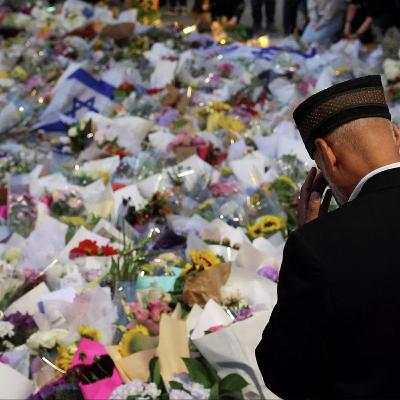

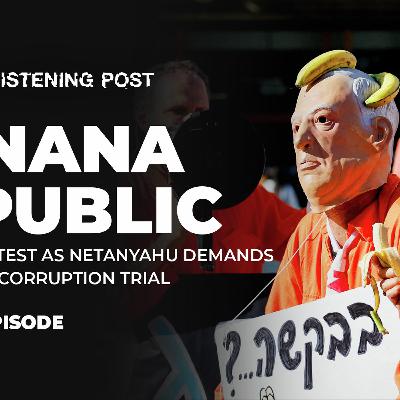
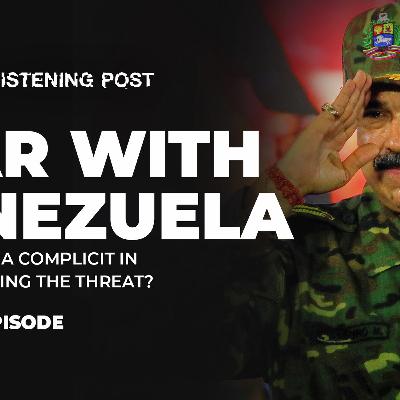
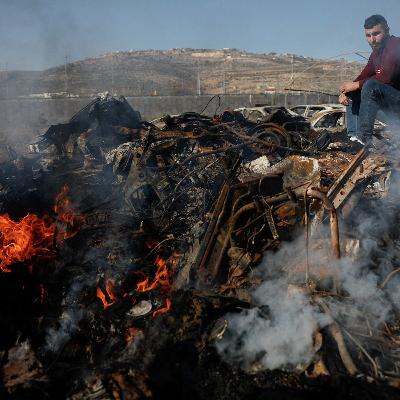
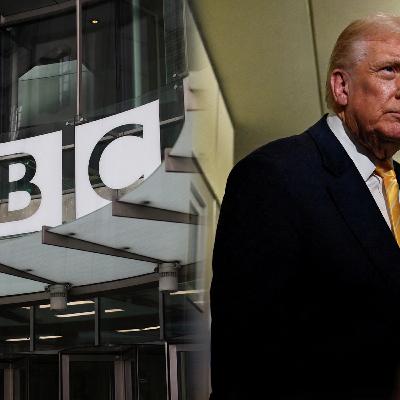
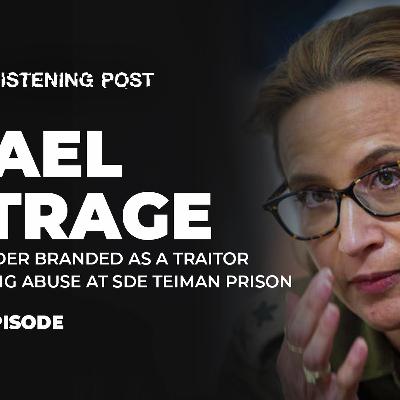
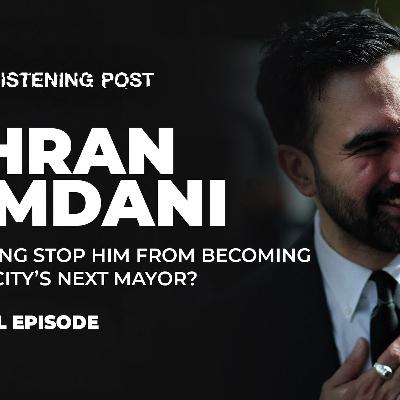
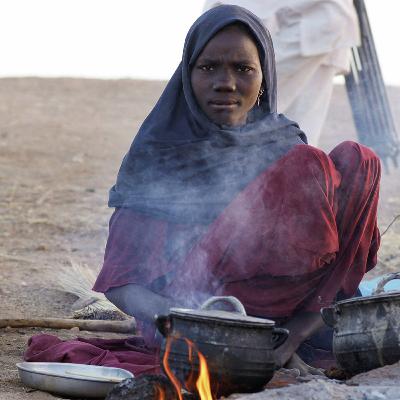
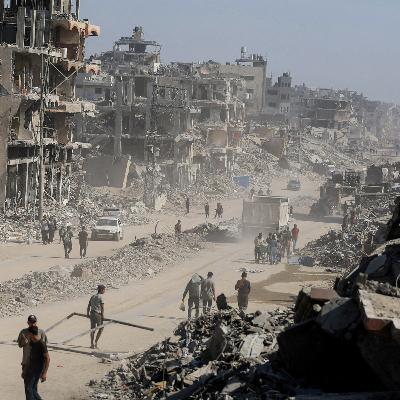




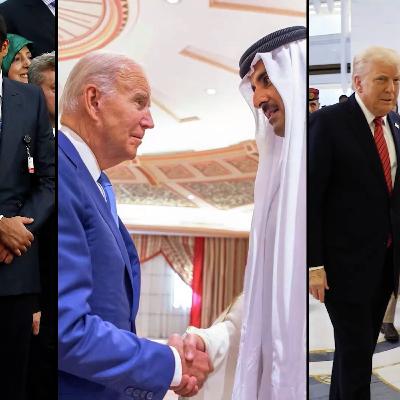
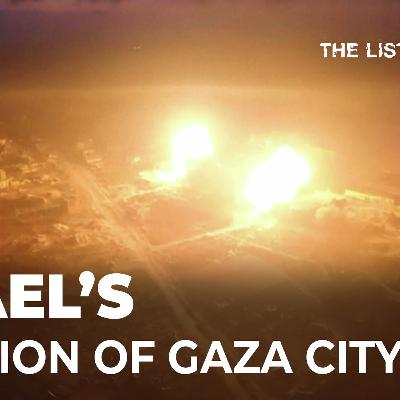
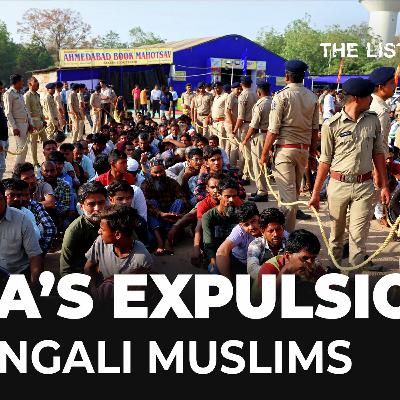
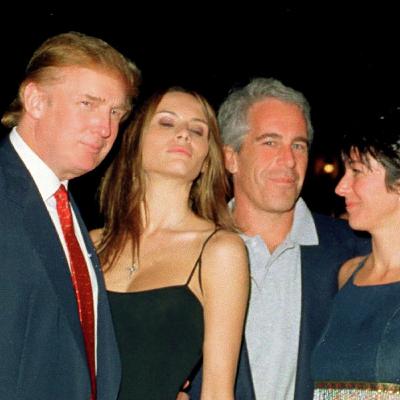
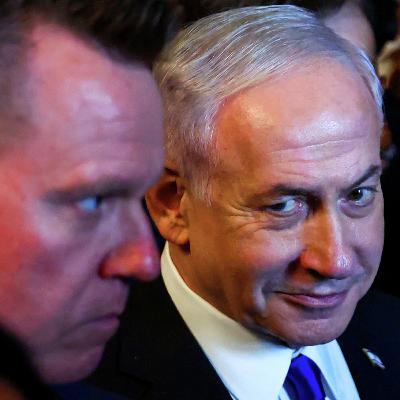




for a long time Aljazeera was my first place to go for world news updates and I believed in it's neutrality, but recently I'm loosing faith in it. specially after Russia invaded Ukraine the News is getting more and more one-sided and showing only one part of the story. WE All want to listen from both sides of the conflict. it can't be that black and white, evil vs good. Now, for first time in my life I have no choice but going desperately to RT and Sputnik (which had made difficult to access) to hear what they are saying.
To say that Boooharee regime is a totalitarian dictatorship, is an understatement. After an hoodwinked house has refused to represent the electorate, now it's time for them to amend the criminal code to proscribe alien and barbaric punishments for protesters. Protests as long as they are peaceful, are the hallmarks of any democracy. Even the military recognized it, except you are a certain boooharee. It's not time to sit and look
Adrian Zenz is a homophobic racist who claims he is on a mission from god to destroy communism. You've used him as a credible source. What a disgrace. Qatar is know for its human rights violations and lack of democracy so don't lecture others from such a decrepit position please.
China reported a pneumonia, and tried to downplay the effects and dangers for months (including silencing numerous doctors ) instead of instituting measures to lockdown and solve the issue. after that everyone is responsible for their own responses, but let's not pretend that the Chinese govt was more interested in saving face than lives
Can your channel name ANY country that does not criminalise treason? Look at the Patriot Act! No legislator had even read it before passing it and its totally sweeping in its powers. Don't talk about that right?
what are the real facts discrediting her work and saying the contrary that big pharma isnt a problem here. counter the "conspiracy theories" with the truth so we can believe. why should we believe Fauci 100%? why should we trust other media cos all I see is bashing fox news without giving the real truth about what is going on.